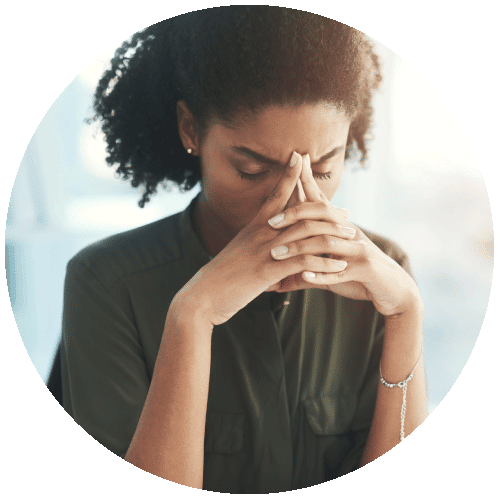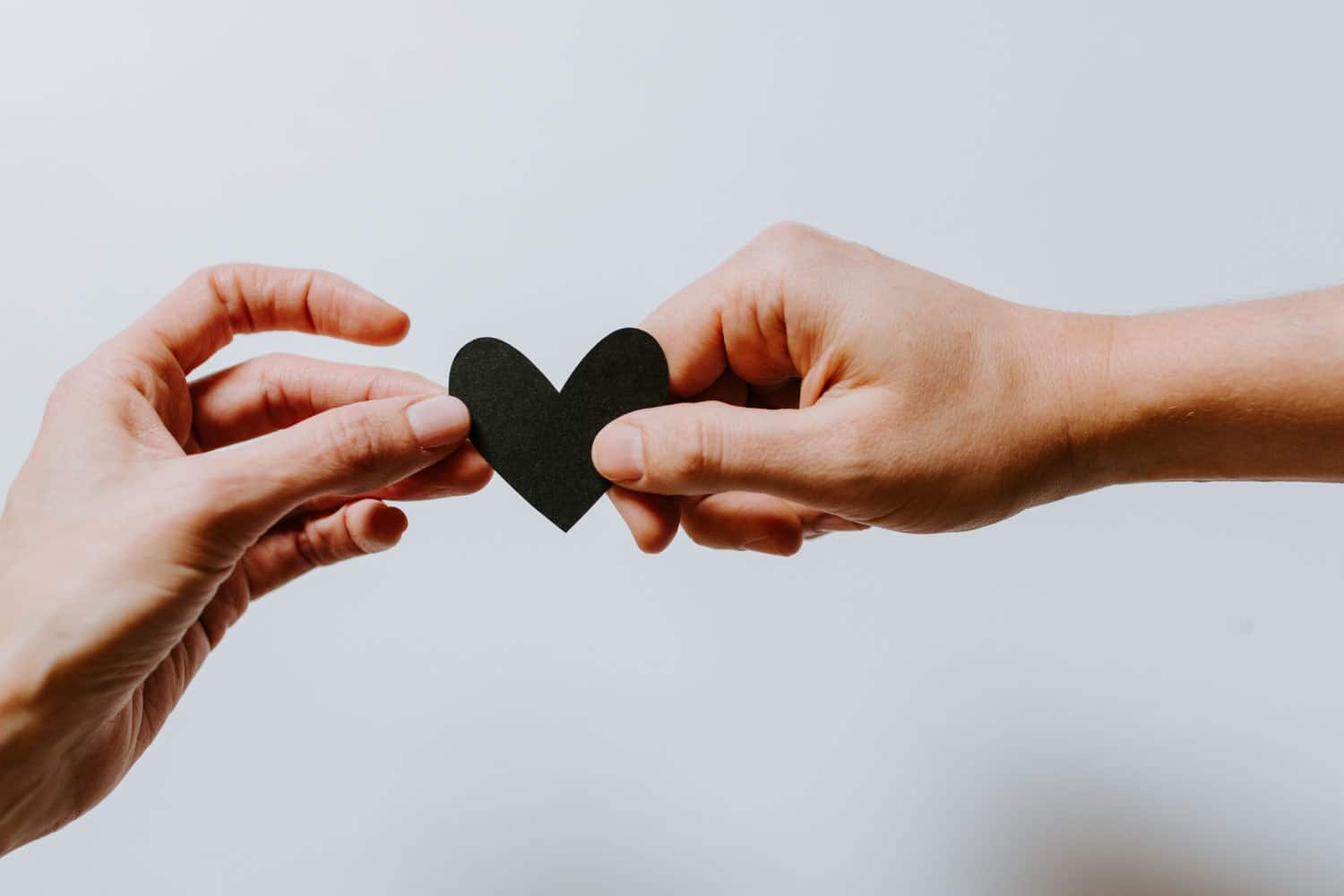By Anna McKenzie
You may experience plenty of times in your life when you feel like being in a relationship would be better than being single. This can happen especially during periods like the holidays or around Valentine’s Day when it seems like “everybody” has somebody. No matter when it strikes, the feeling of “I don’t want to be alone” can quickly convince you to compromise in order to get into a relationship. The truth is, a great relationship is worth waiting for (and working on) — and bad relationships can be far worse than single life. In fact, studies have proven that bad relationships can damage your health in a number of significant ways.
If you’re in recovery from a substance use disorder, a mental health condition, or especially an intimacy disorder, staying away from bad relationships is even more important. You have done the hard work of pursuing healing, and it would be tragic to ruin your progress through an unhealthy connection. There are many reasons why a bad relationship is simply not better than no relationship.
If you’re in recovery from a substance use disorder, a mental health condition, or especially an intimacy disorder, staying away from bad relationships is even more important.
What Happens When You Get into a Bad Relationship
Relationships rarely start out bad. In fact, most are usually exciting at the beginning. You relish the chance to be with someone again. You may recognize that you pushed aside a few red flags — or you rushed into a relationship to avoid seeing any red flags — but none of that matters to you in this early phase. You gain a boost of confidence. Maybe you even start to feel like yourself again.
However, if you get into a relationship and it feels familiar really quickly, you should consider this a warning signal. If you’re in recovery, you’ve probably had attachment patterns that have caused you harm in the past. That old rhythm might seem nice at first, but if you’ve typically been in unhealthy relationships, it’s not a good sign to feel very comfortable right away.
Take this brief screen for sex addiction.
In fact, healthy relationships will probably seem a bit surprising and even somewhat uncomfortable to you, because you won’t be able to hide behind a facade or use your old techniques for gaining control. Healthy relationships are mutual, safe, and honest, which can feel strange if you’re used to manipulation, raw vulnerability (or no vulnerability), and power dynamics.
Signs of a Toxic Relationship
What should you look for if you’re concerned about your current coupledom? Here are a few signs of a toxic relationship:

- Your partner is unkind or dismissive of the people who have supported and encouraged your recovery
- Your partner takes you away from your support systems and makes you feel bad for not engaging in the behaviors he or she does
- You have a history of unhealthy relationships and feel very comfortable in your new relationship right away
- You make excuses for your partner’s behavior and feel yourself slipping back into old habits in order to cope with your feelings
- You decide the relationship is “exciting” rather than stressful and unstable — even though you know better
- Your family and friends say that this person brings out a negative side of you and they are worried for your health or recovery
- You feel pressure to perform, change, or conform in certain ways to gain that person’s approval
- You re-label that person’s abusive statements or behaviors as temporary “outbursts,” but you are reluctant to tell your friends or family about those episodes
- Your partner constantly sends mixed signals, alternately building you up and tearing you down without warning
- You don’t care for yourself as much as you used to or become consumed with fear and self-doubt again
If your partner harms you physically in any way or engages in any verbal or emotional abuse, this is an obvious sign that you are in a bad relationship. While you may not like being single, it is a far healthier option than to be hurt and confused with someone who is hurting you.
Relationships and Mental Health
Our mental health needs ongoing care the same way our physical health does. When we nurture our minds, we handle stress better, get more sleep, and heal more quickly physically. Mental health is integral to our overall health, helping us lead happier, healthier lives. Your relationships play a critical role in your overall mental wellbeing. Research shows that people who are in strong, supportive relationships live longer, healthier lives. They’re less likely to experience anxiety or relationship depression.
Healthy relationships give people purpose and meaning, encourage positive health behaviors such as eating clean, exercising, and finding a good work-life balance, help relieve stress and process emotions, and increase your energy levels. While cell phones and social media have made it easier for us to stay connected to our loved ones, nothing beats face-to-face interaction. Therefore, you should nurture your relationships in person as much as possible.
There are many research studies on how toxic relationships affect your mental health. Unhealthy relationships can lead to stress and mental health issues. Therefore, pursuing emotionally supportive relationships that encourage healthy habits to avoid toxic relationship triggers is essential. Research shows that healthy relationships lead to lower rates of anxiety and depression, higher self-esteem, greater empathy, and more trust and cooperation. Additionally, healthy relationships can help strengthen your immune system, recover from disease quicker, and lead to a longer life.
How a Bad Relationship Harms Your Health
Stress from an unhealthy relationship can cause any number of physical symptoms, and you’re more likely to feel down or even triggered to use substances to cope.
People in unhealthy relationships are more likely to experience:
- Relationship depression
- Alcohol use issues
- Poorer general health
SOURCE: The University of Buffalo
So what if you don’t really get into a relationship? Isn’t it possible to have intimacy without the commitment? While this may seem like a convenient workaround, the results of pursuing non-committal intimacy are not promising either.
Oprah.com conducted an online poll to assess women’s feelings about casual sex and a whopping 3,000 women responded. Of those who participated in casual sex, only a quarter said they were able to do so without getting attached. On the whole, 80% said that once the experience was over, they regretted it. In all likelihood, what you really want out of intimacy is the safety and satisfaction of a great relationship. Having casual sex or getting into a relationship just for the sake of not being alone will not get you there.
The real question is this: Why risk all that you’ve worked for when feelings of loneliness will pass? If you have already come this far, you owe it to yourself to get into a healthy, rewarding relationship, even if it takes patience and grit.
Stress from an unhealthy relationship can cause any number of physical symptoms, and you’re more likely to feel down or even triggered to use substances to cope.
Why a Great Relationship Is Worth Waiting for (and Working On!)
Great relationships have a number of positive benefits, which makes it worthwhile not to settle or compromise. Another study from the same University of Buffalo research team showed that when people stayed in high-quality relationships, they experienced better overall health.
When you’re in a healthy relationship, you will be satisfied instead of doubtful, even when the circumstances are less than ideal. You can share discomfort and pain together and still be happy — which is very different from being alone in your unhappiness, or continually being unhappy with each other. You can encourage each other and move toward being your best selves. Healthy relationships are founded on trust, honesty, communication, and commitment, and happiness is often a byproduct of those things.
A great partner:
- Allows you to be yourself, but also challenges to you grow and reach your potential
- Takes care of you (instead of you taking care of him all the time)
- Believes in you and is always on your team
- Makes the relationship worth fighting for
When you feel safe and cared for, you are much more likely to enjoy your partner’s company and invest in yourself and in him or her.
On the other hand, instability, emotional extremes, and regular breaches of trust (especially with no resolve) can wear down your confidence and willpower. When you have to endure constant highs and lows, it may be exciting at first, but it can bring stress and possibly trigger a relapse. You will find yourself looking for other ways to cope, which may include compulsive behavior, habit, or substance that you think you just need “for right now.”
Unhealthy relationships will take their toll, dragging you down physically, emotionally, mentally, and spiritually. It is not worth your wellness to be with someone who is going to jeopardize your personal stability — and everything you’ve worked for — for the “idea” of happiness.
Treatment for Addiction and Intimacy Disorders at The Meadows
At The Meadows, we treat a range of addictive disorders, compulsive behaviors, mental health conditions, and codependency and control issues. We treat every person with compassion and respect, equipping individuals with the tools, training, and resources they need to rediscover their wellness and sustain it for long-term recovery. If you or a loved one is in need of treatment, please get in touch with our team today.

